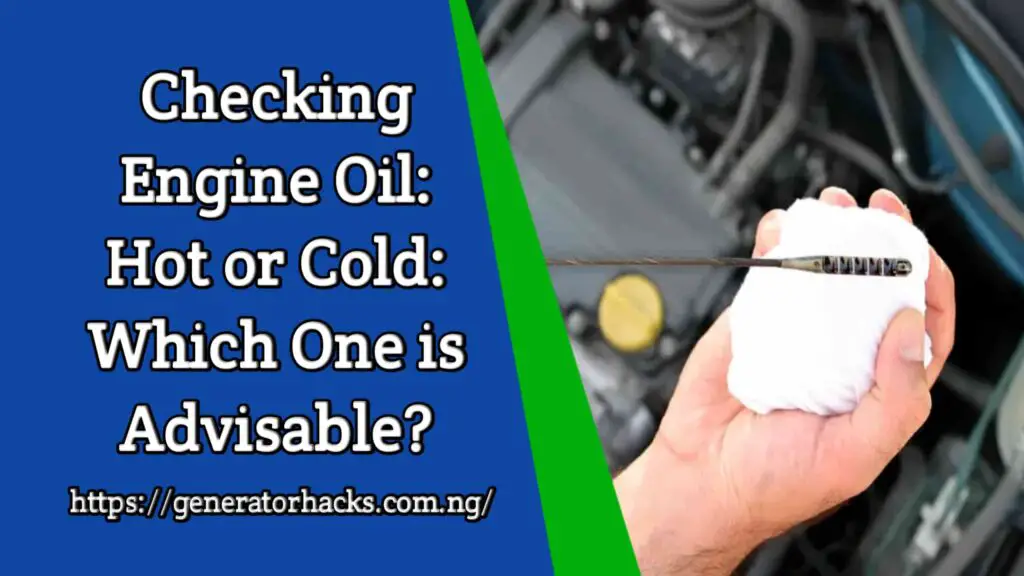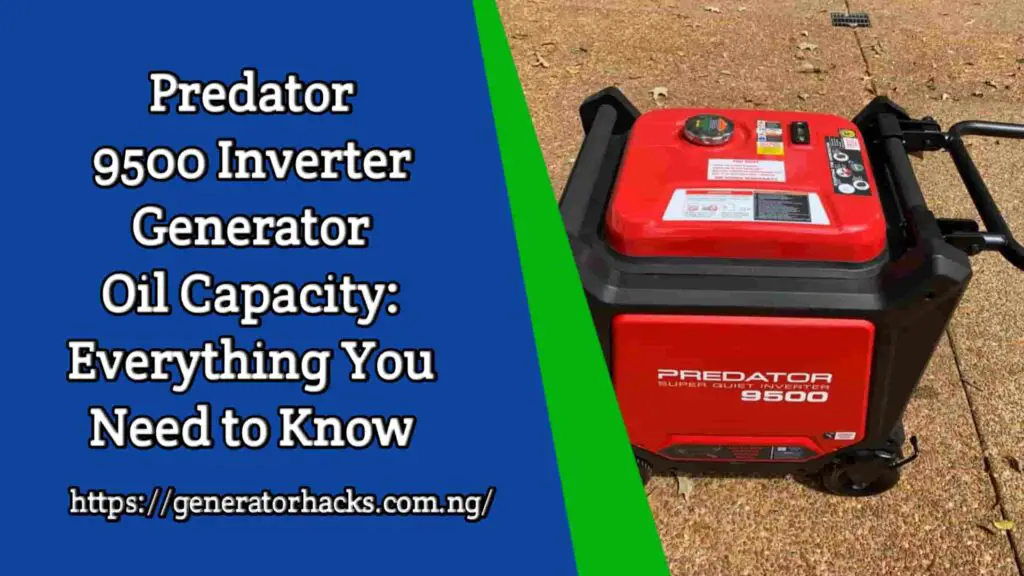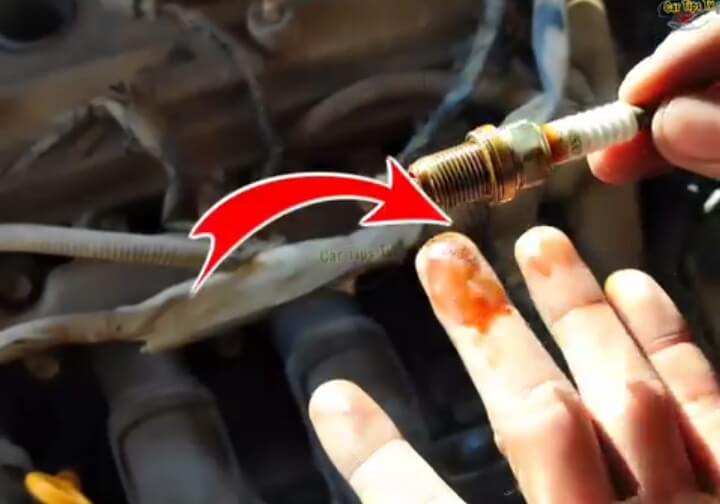As an Amazon Associate, we earn from qualifying purchases. This does not affect the price you pay or the quality of the products you buy. For more information, please read the full affiliate disclosure here.
80% of the issues that cause generators to be immensely damaged beyond repairs are due to low oil pressure. As a result of this, manufacturers ensure they try all they can to make sure every generator owner knows the importance of oil.
With that in mind, if you’ve ever noticed that your generator’s oil pressure has been running low, you must address the issue as soon as possible to prevent future damage to your generator engine.
Hence, in this article, you will learn the possible causes of low oil pressure in the generator, the signs involved, and also how you can fix low oil pressure in your generator.
Let’s get started!
What is Low Oil Pressure in Generator?
When it comes to low oil pressure in generators, it is known as the condition in which the pressure of the oil within the generator system falls below the recommended level.
Oil pressure in generators is the most important aspect in generators because it helps to lubricate the engines and keeps them running efficiently.
However, when the oil pressure is low or not at the recommended level, it won’t lubricate the engines and can cause serious damage to the generator as a whole.
So, after knowing what low oil pressure is in generators, let’s talk about the signs you will notice when your generator has low oil pressure.
Also Read: How to Fix Generator That Won’t Start
Signs of Low Oil Pressure in Generator
There are a lot of signs your generator will show whenever its oil is low beyond recommended level, and in this part of the article, we will discuss those signs in detail.
Among the signs your generator will show include:
- Your generator oil pressure gauge will read low: Not always but one of the signs you have a low oil pressure in your generator is that the oil gauge will rear low, but it depends if it’s still working effectively. Additionally, the function of this gauge is to measure the level of oil in your generator.
- Your generator’s engine will be making a knocking or ticking noise: Secondly, if you noticed any of these sounds, then it’s high time you know that your generator’s engine lacks lubrication. This means that there’s a low oil pressure in the engine crankcase and there’s a metal-on-metal contact between different moving parts in the generator.
- Your generator runs poorly or stalls: Thirdly, when I mean the generator will run poorly or stalls when you want to start it, you will notice it is stable and not the way it’s supposed to. In other words, it’s not running smoothly.
- Lastly, if produced with smoke: In an article I wrote, I stated reasons why the generator emulates white smoke from its exhaust. And one of these reasons is if your generator’s oil rings are long gone, then you need to change it because it causes low oil pressure. Another reason generators smoke is if the oil is more than its recommended level.
So, these are the signs you will notice when your generator starts to develop a low oil pressure problem. Now, let’s talk about how you can check oil pressure, the causes and how you can fix it.
Also Read: How to Make a Generator Quiet: 5 Best Ways
How to Check Oil Pressure on Generator
The thing is that, if you’d notice any signs mentioned above with your generator, you must check your generator’s oil pressure before starting it. But in case there’s oil in it or you don’t know how you can check it, here are a few steps to guide you through that process.
The only way you can check the oil pressure in your generator is to make use of the generator oil pressure gauge, which can be found on the dashboard or instrument panel of your generator. You will see it like a cover. Additionally, it’s mostly found on the side of every generator.
Once you locate the oil pressure gauge, firstly, start and run your generator for some minutes, maybe 5 minutes will be better. This will help the oil to circulate and read the correct pressure, unlike when you don’t run your generator. In other words, you won’t be able to get the right oil pressure. Additionally, while doing this, make sure the generator is balanced.
After running the generator for a few minutes, then you turn it off and check the oil pressure by using the pressure gauge. However, every pressure gauge has how you can check your oil pressure because of different manufacturers and different production. But you can comment on your product type so we can help.
Lastly, after you have checked the generator oil and see that the oil is at its recommended level, or it’s not yet due for a change, then you are good to continue using your generator. But in cases it has low oil pressure, make sure to contact a generator mechanic or repairer to help you with that if you can’t do it yourself.
What Can Cause Low Oil Pressure in a Generator?
There are a lot of things that can cause low oil pressure in a generator and among those include:
- If the generator has worn bearings.
- If the oil filter is clogged.
- If the oil is degraded.
- If the oil pump fails.
- Lastly, if there is a worn-out seal or your oil rings are weak.
Now, let me explain in detail that these factors mentioned can cause low oil pressure in generators.
1. Worn Bearings
Worn bearings can cause low oil pressure in generators because they create additional resistance within the oil system. As a result, if the bearings wear out, they become loose or misaligned, which can increase the amount of friction within the engine system.
Hence, the increase in friction can cause the oil pump to work harder to maintain the correct oil pressure, which can lead to a drop in pressure. Additionally, a worm out bearing can not only cause your low oil pressure, but it can also damage your generator’s engine crankcase.
2. Clogged Oil Filter
Another cause of low oil pressure in generators is if the oil filter is clogged, which means that there will be a restriction in the flow of oil throughout the system, which is also not good for a running generator.
In addition, the oil filters are responsible for removing contaminants and debris from the oil as it circulates through the generator. Therefore when this debris and contaminants clog the oil filter, it can lead to a drop in oil pressure. That’s why it’s important to always service your generator.
3. Degraded Oil
Thirdly, if your oil is degraded, it can cause your generator to experience low oil pressure because the oil can become thick and sluggish, making it difficult for the oil pump to maintain the correct pressure.
Additionally, the oil can also contain contaminants and debris which can further reduce its ability to flow freely and lubricate the engines, causing it to lose pressure. So, while the filter helps filter oil, it’s also important you check the type of oil you use ensuring it’s what the manufacturers recommended for the generator.
However, you can also check out the best types of oil for the generator, to know which oil would work better for you and which one won’t work.
4. Failing Oil Pump
If you are the type that makes use of diesel generators, then you might’ve noticed your oil pump failing. And when that happens, your generator would not start till when serviced by a professional.
The oil pump failing is a result of different factors including contamination, mechanical issues, and so on. Which as a result can cause your generator to develop friction issues with the crankcase.
5. Worn Out Seal And Oil Rings Weakness
Oil seals help to keep the oil within the generator engine crankcase, the same as oil rings. And if any of these two are damaged or weak, then there’s a high probability of oil escaping from the engine crankcase when running, which can also result in damaging your generator when not fixed instantly.
Also Read: Is Generator Oil The Same As Car Oil?
How to Fix Low Oil Pressure Generator
We have come to the main part of this article, which is how you can fix low oil pressure in generators. And there’s no way you can fix a problem when you don’t know the cause of the problem. Henceforward, with the listed cause above, you can easily know how to fix low oil pressure in your generator.
To fix oil pressure in generators, you’ve to first diagnose the problem and find the exact cause of your generator developing low oil pressure issues. However, if you aren’t a professional in this aspect or don’t have knowledge of generators, it will be hard for you to diagnose the problem and identify the exact cause of it.
Hence, contacting a professional or generator repairer is needed because once they diagnose the cause of the problem, they will be able to know what to do next. For instance, if it’s the oil filter that’s clogged, they will be able to change it or if it’s the oil rings are weak.
Conclusion
Fixing low oil pressure takes a whole lot of things, which only a professional in the field or generator repairer can do. The best you can do is to identify the causes and how you can prevent them, as also some of the signs that you might be experiencing low oil pressure. In addition to you identifying the causes, you can also help the generator repairer to save time.
Bonus Take Away
Lastly, here are some of the key things to keep in mind concerning low oil pressure in generators. The listed factors here will also help you prevent it from happening if practiced efficiently.
- Always check your generator’s oil level.
- Make use of high-quality oil filters. You can learn more on how you can identify and choose the correct type of oil for your generator here, and also some of the best oils I recommended.
- Make sure you also maintain your generator. I mean you should always schedule it for servicing after long hours of work.
- If you’ve noticed any signs in your generator, don’t ignore the signs and never allow them to go unchecked.



